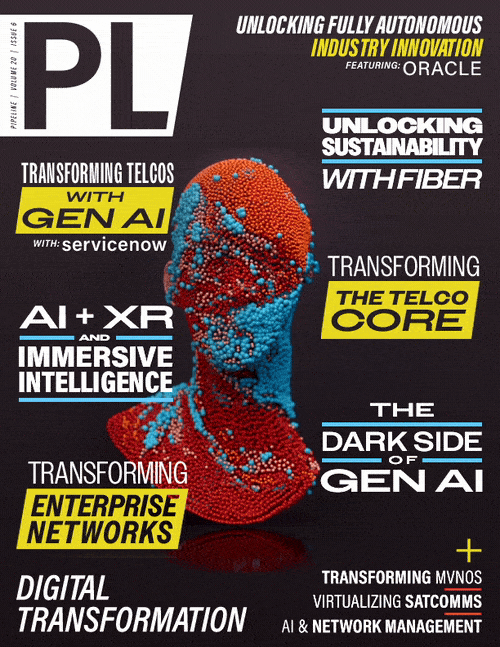Intel Introduces Cloud-to-Edge and On-Premises Trust AssuranceIntel Introduces Project Amber for Cloud-to-Edge and On-Premises Trust AssuranceProvides customers and partners a security foundation for confidential computing, secure and responsible AI, and quantum-resistant crypto into the quantum era.NEWS HIGHLIGHTS
Intel turns its focus to how it will meet the growing security needs of organizations today and help them prepare for the challenges of tomorrow. Focusing on one of the most critical security elements for any organization – trust – Intel introduced an independent trust authority in the form of an innovative service-based security implementation code-named Project Amber. The company also demonstrated its focus on enabling secure and responsible AI, and outlined its strategy to further build quantum-resistant cryptography for the coming quantum computing era. “As organizations continue to capitalize on the value of the cloud, security has never been more top of mind. Trust goes hand in hand with security, and it is what our customers expect and require when delivering on Intel technology,” said Greg Lavender, chief technology officer, senior vice president and general manager of the Software and Advanced Technology Group at Intel. “With the introduction of Project Amber, Intel is taking confidential computing to the next level in our commitment to a zero-trust approach to attestation and the verification of compute assets at the network, edge and in the cloud.” Trust Assurance for the Hybrid Workforce Businesses operate in and depend on the cloud to support remote workforces that require multiple devices, uninterrupted access and collaboration tools. Technology solutions need to secure data not only in memory and in transit, but also in use – protecting valuable assets and minimizing attack surfaces. Project Amber provides organizations with remote verification of the trustworthiness of a compute asset in cloud, edge and on-premises environments. This service operates independent of the infrastructure provider hosting the confidential compute workloads. Confidential computing, the protection of data in use by performing computation in a hardware-based trusted execution environment (TEE), is a growing market. Intel® Software Guard Extensions (Intel® SGX) available on the Intel® Xeon® Scalable platform is one of the main technologies powering confidential computing today, enabling cloud-use cases that are beneficial for organizations that handle sensitive data on a regular basis. The foundational basis of trust in a confidential computing environment is established via a process called attestation. The verification of this trustworthiness is a critical requirement for customers to protect their data and intellectual property as they move sensitive workloads to the cloud. To raise trust assurance and drive forward the promise of confidential computing for the broader industry, Intel announced Project Amber as the first step in creating a new multi-cloud, multi-TEE service for third-party attestation:
Intel plans to launch a customer pilot of Project Amber in the second half of 2022, followed by general availability in the first half of 2023. Paving the Way for Secure and Responsible AI Artificial intelligence (AI) propels technology even further, enabling insights and automation to handle greater scale. With this proliferation of sensitive information, the threat landscape grows, as do the surrounding security concerns. That’s why Intel is committed to developing artificial intelligence that is secure and responsible. Highlighting the criticality of AI outcomes being used as a force for good, Intel emphasized the key question technologists should ask before they decide to continue pursuing development: Does the technology contribute to improving our society? Maintaining data integrity, accuracy and privacy is at the heart of Intel’s industry-leading research efforts. Intel demonstrated how it is accelerating AI deployments in ways that are responsible and secure to help customers and partners solve complex problems:
The responsible use of AI also serves as an example of how the industry can come together and pave the path for deployment across verticals that include healthcare, financial services, manufacturing, retail and entertainment, among others. Quantum-Resistant Cryptography for a Secure Quantum Computing Future As quantum technology continues to develop, post-quantum experts anticipate a moment in the next 10 to 15 years when, as an industry, it will reach a similar situation as the “millennium bug.” Many call it “Y2Q.” Quantum computing impacts both symmetric and public key cryptography, and will require the entire ecosystem to bring ingenuity and collaboration to find solutions. To be Y2Q-ready or quantum-resistant by 2030, the time to act is now. Intel is developing a rich cryptography technology pipeline to lead the industry with innovations that are quantum-resistant, including the built-in crypto acceleration in the 3rd Generation Intel Xeon Scalable platform that provides next-generation security without sacrificing performance. Intel is working proactively to address threats posed by quantum computers. The company developed crypto guidelines for Intel products, actively contributed to post-quantum crypto standardization efforts and is evaluating the new families of crypto algorithms being considered for standardization by the National Institute of Standards and Technology (NIST). Intel has adopted a phased approach to address threats posed by quantum computing:
Security technologies must accommodate not just the needs of today, but those of tomorrow. Intel’s breadth and depth of hardware and software technologies enable customers to derive additional value from their existing platforms. Source: Intel media announcement | |

















